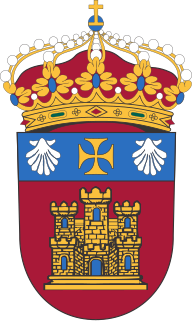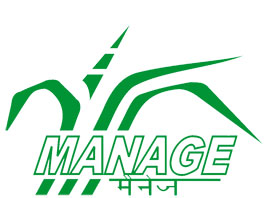
A library is a curated collection of sources of information and similar resources, selected by experts and made accessible to a defined community for reference or borrowing, often in a quiet environment conducive to study. It provides physical or digital access to material, and may be a physical location or a virtual space, or both. A library's collection can include books, periodicals, newspapers, manuscripts, films, maps, prints, documents, microform, CDs, cassettes, videotapes, DVDs, Blu-ray Discs, e-books, audiobooks, databases, table games, video games and other formats. Libraries range widely in size up to millions of items. In Latin and Greek, the idea of a bookcase is represented by Bibliotheca and Bibliothēkē : derivatives of these mean library in many modern languages, e.g. French bibliothèque.
The United States National Agricultural Library (NAL) is one of the world's largest agricultural research libraries, and serves as a national library of the United States and as the library of the United States Department of Agriculture. Located in Beltsville, Maryland, it is one of five national libraries of the United States. It is also the coordinator for the Agriculture Network Information Center (AgNIC), a national network of state land-grant institutions and coordinator for the U.S. Department of Agriculture (USDA) field libraries.
Agricultural extension is the application of scientific research and new knowledge to agricultural practices through farmer education. The field of 'extension' now encompasses a wider range of communication and learning activities organized for rural people by educators from different disciplines, including agriculture, agricultural marketing, health, and business studies.

The Technical Centre for Agricultural and Rural Cooperation ACP-EU (CTA) was established in 1983 under the Lomé Convention between the African, Caribbean and Pacific Group of States and EU member states. Since 2000 CTA has operated within the framework of the ACP-EU Cotonou Agreement with a mission to “strengthen policy and institutional capacity development and information and communication management capacities of ACP agricultural and rural development organisations. It assists such organisations in formulating and implementing policies and programmes to reduce poverty, promote sustainable food security, preserve the natural resource base and thus contribute to building self-reliance in ACP rural and agricultural development.”
Agricultural Information Management Standards, abbreviated to AIMS is a space for accessing and discussing agricultural information management standards, tools and methodologies connecting information workers worldwide to build a global community of practice. Information management standards, tools and good practices can be found on AIMS:

IUBAT—International University of Business Agriculture and Technology is also known as (IUBAT) is the first non-government university in Bangladesh. It was established in 1991 under the Private University Act 1992. The university is also a full member of Association of Commonwealth Universities (ACU), London.
Information and communication technology in agriculture, also known as e-agriculture, focuses on the enhancement of agricultural and rural development through improved information and communication processes. More specifically, e-agriculture involves the conceptualization, design, development, evaluation and application of innovative ways to use information and communication technologies (ICTs) in the rural domain, with a primary focus on agriculture. ICT includes devices, networks, mobiles, services and applications; these range from innovative Internet-era technologies and sensors to other pre-existing aids such as fixed telephones, televisions, radios and satellites. Provisions of standards, norms, methodologies, and tools as well as development of individual and institutional capacities, and policy support are all key components of e-agriculture.
The Global Forum on Agricultural Research and Innovation (GFAR) is an inclusive global mechanism enabling all those concerned with the future of agriculture and its role in development around the world to come together and address key global needs. GFAR provides an open forum for stakeholders across the agricultural spectrum—from researchers and organizations to farmers—to participate in collaborative discussion and action around the current and future state of agriculture.
The Agriculture Network Information Collaborative (AgNIC) alliance was formed in 1995 by a group of four land grant institutions - Cornell University, Iowa State University, University of Arizona, and University of Nebraska-Lincoln, and the U.S. Department of Agriculture's National Agricultural Library (NAL). In 1998, NAL assumed the role as “secretariat” to move the partnership forward. Members were committed to creating a voluntary “alliance” dedicated to providing Internet access to quality, authoritative agricultural information, and specialized reference services. In 2007, with 60 voluntary partners, this vision continues to sustain the Alliance, largely due to its collaborative nature. University libraries affiliated with land-grant colleges—as well as other interested institutions, such as the International Rice Research Institute, the American Farmland Trust, the Agricultural Information and Documentation Service for America (SIDALC) and the University of Buenos Aires, School of Agriculture, Central Library, are working together with NAL to develop the AgNIC Alliance, its collections and services, and the technologies upon which it relies.

The University of Burgos is a public university in the Spanish city of Burgos with about 10,000 students studying over 30 different undergraduate degrees, over 20 PhD Programmes, as well as several Official Masters and other graduate courses.
The International Assessment of Agricultural Knowledge, Science and Technology for Development (IAASTD) was a three-year international collaborative effort (2005–2007) initiated by the World Bank in 2002, which evaluated the relevance, quality and effectiveness of agricultural knowledge, science, and technology, and the effectiveness of public and private sector policies and institutional arrangements.
AGRIS is a global public domain database with more than 9 million structured bibliographical records on agricultural science and technology. It became operational in 1975 and the database was maintained by Coherence in Information for Agricultural Research for Development, and its content is provided by more than 150 participating institutions from 65 countries. The AGRIS Search system, allows scientists, researchers and students to perform sophisticated searches using keywords from the AGROVOC thesaurus, specific journal titles or names of countries, institutions, and authors.
SEARCA or the Southeast Asian Regional Center for Graduate Study and Research in Agriculture is one of the oldest among 24 specialist institutions of the Southeast Asian Ministers of Education Organization (SEAMEO). Founded on 27 November 1966, SEARCA is mandated to strengthen institutional capacities in agricultural and rural development in Southeast Asia.
GLAM is an acronym for "galleries, libraries, archives, and museums", and refers to cultural institutions with a mission to provide access to knowledge. GLAMs collect and maintain cultural heritage materials in the public interest. As collecting institutions, GLAMs preserve and make accessible primary sources valuable for researchers.

Isabela State University is a public university in the province of Isabela, Philippines. It is mandated to provide advanced instruction in the arts, agricultural and natural sciences as well as in technological and professional fields. Its main campus is located in Echague, Isabela.
An agricultural attaché is a diplomat who collects, analyzes, and acts on information on agriculture, agribusiness, food, and other related spheres in a foreign country or countries. Agricultural attachés may be directly employed by the sending country's agriculture ministry, or they may be employed by the foreign ministry. Typical activities of an agricultural attaché include reporting on crop conditions, food availability, domestic agricultural policy and the foreign trade outlook in agricultural commodities; negotiating food aid agreements and agricultural credit lines; implementing agricultural technical assistance programs; facilitating professional contacts, exchanges, and technology transfer; assisting in negotiating bilateral and multilateral trade agreements; and promoting the exports of agricultural and food products. In many cases, agricultural attachés may also bear responsibility for issues related to the environment, food security, food safety, fisheries, forestry, and indeed anything related to rural areas and the rural economy.

National Institute of Agricultural Extension Management, known as MANAGE, formerly National Centre for Management of Agricultural Extension at Hyderabad, is an autonomous extension and agribusiness management institute located in Hyderabad, Telangana, India. The aim of the institute is to instill managerial and technical skills to Extension Officers, Managers, Scientists and Administrators in the agricultural economy, to enable them to provide support and services to farmers and fishermen for practicing sustainable agriculture.
The Tropical Agricultural Research and Higher Education Center is an international institute for agricultural development and biological conservation in Central America and the Caribbean, combining science, education and innovation. CATIE is the first graduate school in Agricultural Sciences in Latin America.

The Indian Institute of Corporate Affairs (IICA) is an subordinate office under the aegis of Ministry of Corporate Affairs, Government of India. Handling and dealing with various subjects, matters and affairs in the arena and spectrum of corporate affairs regulation, governance and policy. It was established in 2008 at Manesar, Haryana. It is the sole institution in the country that has been authorised by Insolvency and Bankruptcy Board of India to run its flagship Graduate Insolvency Program. It houses National Foundation for Corporate Social Responsibility, one of the Apex body in India in the area of Corporate Social Responsibility. NFCSR gives policy support to government for CSR and organises various training program in CSR. It also provides various services to Corporates for CSR including Impact Assessment, Need Assessment, Baseline survey, Real time monitoring etc.
The Low Emissions Development Strategies Global Partnership aims to advance climate-resilient low emission development and support transitions to a low-carbon economy through coordination, information exchange and cooperation among countries and programs working to advance low-emission economic growth. The partnership was launched in 2011 and brings together more than 160 governmental and international institutions. The implementation, knowledge management, and outreach of LEDS GP is coordinated by a co-secretariat of the Climate & Development Knowledge Network (CDKN) and the National Renewable Energy Laboratory (NREL).